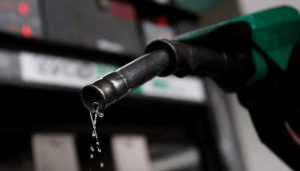By Cynthia Ezekwe
The Nigeria Extractive Industries Transparency Initiative (NEITI) has unveiled measures to manage subsidy removal while mitigating the potential adverse impacts it will have on the citizens.
The national body responsible for ensuring transparency and accountability in the extractive industries geared towards the enhancement of national development,
welcomed president Bola Tinubu’s position that the revenues saved from subsidy should be channelled to education, health, roads and other critical infrastructures.
In a statement signed by Obiageli Onuorah, head communications & stakeholders management, NEITI lauded the president’s efforts to block leakages, grow revenues and advance the ongoing reforms in the oil, gas and mining industries through the removal of fuel subsidy.
NEITI noted that its recommendations for the subsidy removal remained a persistent request since 2006, given the agency’s concerns about the huge financial burden that the subsidy imposed on economic growth over the years.

It further stated that the consequences of funding subsidies have resulted in poor development of the downstream sector, declining GDP growth, rise in product theft, pipeline vandalism, environmental pollution and undue pressure on foreign exchange.
Making reference to its report, it stated that between 2005 to 2021, the country spent $74.3862 billion which translates to 13.697 trillion in Naira; a breakdown of these figures showed that in 2005, the government paid $2.6 billion as subsidy, In 2006 and 2007, it paid $1.99 billion and $2.176 billion respectively.
It added that subsidy payments more than doubled in 2008 and 2010 and witnessed the highest increase ever in 2011 to $13.52 Billion however a sharp decline was witnessed in 2012, 2013, 2014 and 2015 when it dropped to as low as $473 Million in 2017.
“The reduction was short-lived as the payments skyrocketed to over $3.88 Billion in 2018 and 2021 to $3.575 Billion, by these figures, Nigeria spent an average of 805.7 billion naira annually, 67.1 Billion monthly or N2.2 billion daily,” it stated.
The NEITI data added that the amount spent on subsidies from 2005 to 2021 is equivalent to the entire budget for health, education, agriculture and defence in the last 5 years and also equals the capital expenditure for 10 years between 2011-2020.
To this end, NEITI urged that implementation of the Petroleum Industry Act (PIA) be strengthened as a whole and not in parts, adding that the government should commission a special report on actual PMS consumption in Nigeria.
NEITI also stressed the importance of unveiling the implementation of people-oriented welfare programs to provide relief for the poor and vulnerable, adding that utmost attention be paid to the rehabilitation of the nation’s four refineries currently ongoing while encouraging private investments in establishing new refineries.
The agency advised that stringent sanctions are enforced for criminal activities in the oil and gas sector while stakeholders’ consultations, engagements and enlightenment are properly conducted.
It further urged regulatory institutions to stand firm and tackle artificial scarcity, hoarding and other man-made obstacles being created at the moment to frustrate the implementation of subsidy removal.








